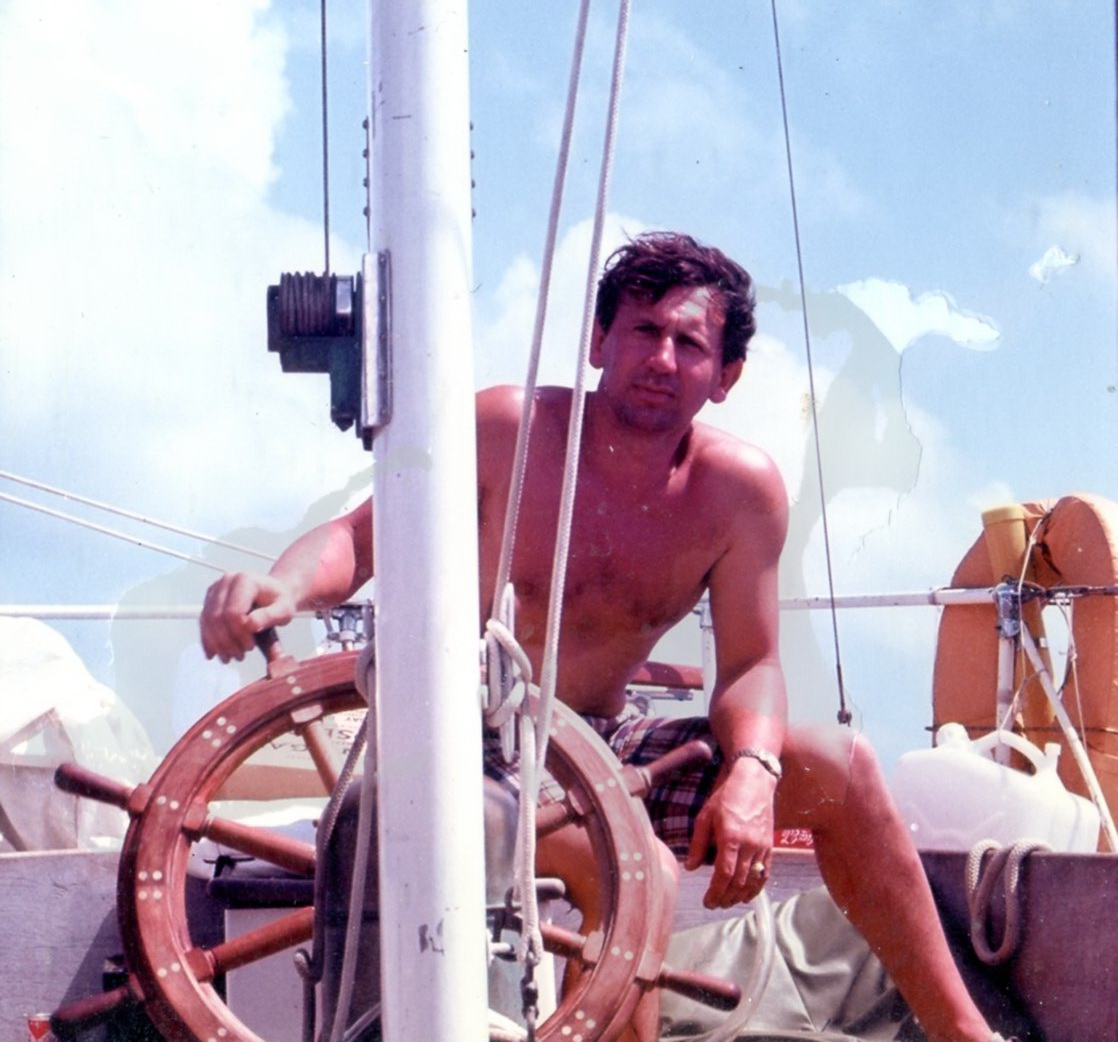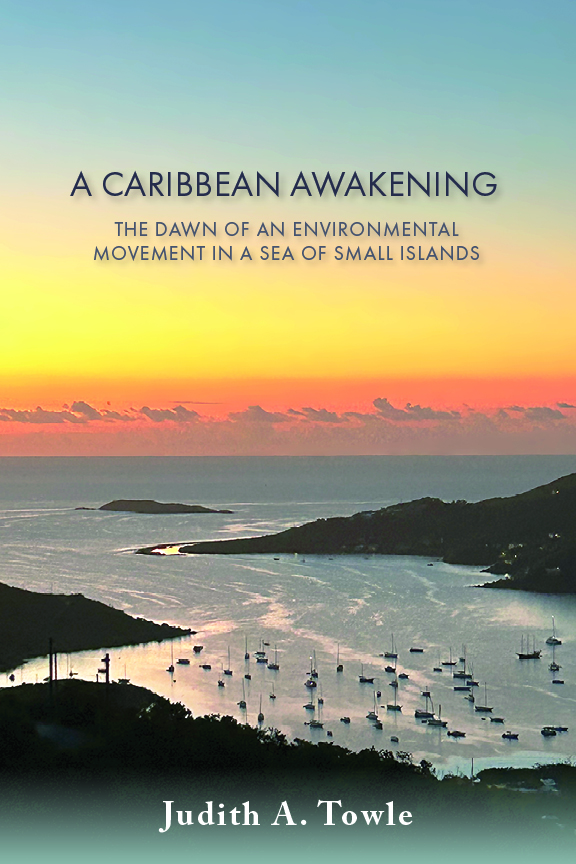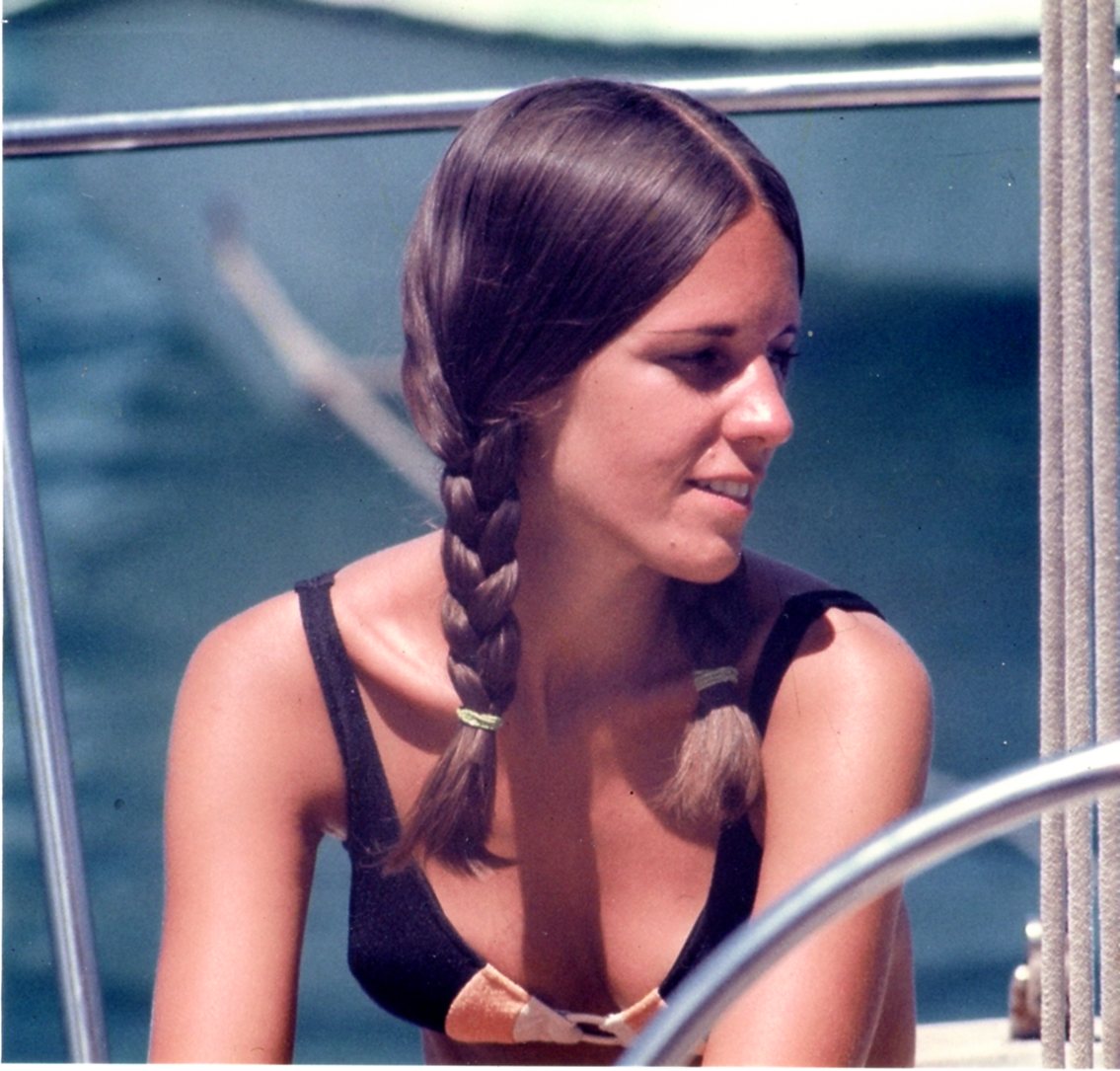What did some dewy-eyed recent college grad from Milwaukee and her stateside history professor husband know about island conservation in the Eastern Caribbean?
Maybe not that much when they arrived in St. Thomas on a 70-foot motor yacht in 1967.
But Edward and Judith Towle would spend the rest of their lives leading environmental efforts in the region. As founders and leaders of the non-profit Island Resources Foundation, they met several generations of the Who’s Who of the Eastern Caribbean and worked with just about everyone who cared about preservation in the region.
Their introduction to the Caribbean had come when Ed Towle visited Anegada on assignment for the Smithsonian Institute. On a layover in St. Thomas, a chance encounter led to a job offer at the then College of the Virgin Islands as director of its research center.

Soon, Ed was elected president of the fledgling Caribbean Conservation Association, and Judith, a history major who had spent two years working in Congress, went to work for the V.I. Department of Conservation and Cultural Affairs (the forerunner to the Department of Planning and Natural Resources). A few years later, they founded the Island Resources Foundation.
Ed died in 2006. Now Judith has just released the book he always meant to write, albeit with her own expanded take on the subject: “A Caribbean Awakening – the Dawn of an Environmental Movement in a Sea of Small Islands.”

The book makes a wide sweep across the Caribbean and the northern Atlantic but concentrates primarily on the Leeward Islands, especially, though not exclusively, those with English-speaking communities. The author highlights Ed’s heroes in the environmental movement and adds a lot of her own research for context and background.
Of special interest to Virgin Islands readers may be Towle’s retelling of the controversial transformation of nearly two-thirds of St. John into a National Park.
The park was established in 1956 – well before the Towles arrived on the scene, and does not fit into their legacy. But the author has included its history as part of a focus on the growth of park systems and nature preserves throughout the region.

In general, she heralds the creation of parks as a manifestation of serious conservation. However, in revealing details she found in the archives surrounding the National Park on St. John, she also helps explain the bitter aftertaste many island residents retain 70 years later.
Originally consisting of 5,086 acres, the St. John park has grown over the years to 7,259 land acreage plus 5,650 acres of undersea or submerged land, according to the Park Service.
Although the super-wealthy developer and philanthropist Laurance Rockefeller is widely recognized as the central figure in the story, Towle makes it clear others played key roles.
To begin with, the idea of the park predates Rockefeller’s public involvement by decades. According to Towle, an official with the U.S. Park Service, Conrad Wirth, “first recognized the potential” for a park on St. John in 1931 when he had oversight for reviewing possible park sites, and he asked then for an internal evaluation of the island.
In 1938, another park official, Harold Huber, proposed that Reef Bay, St. John be turned into a national park and then, in 1939, provided a report calling for the island to be a park.
Both Huber and Wirth were with the NPS in the 1950s when the talk of a park got serious. Wirth, in fact, was head of it, having been promoted to director of the NPS in 1951 and retaining that position until 1964. Huber, who updated his St. John report in the 1950s, became the first superintendent of the St. John National Park in 1957, the year after it was created.
Another prominent figure in the tale, according to Towle, is the stateside real estate developer Frank Stick, who previously had promoted establishing a park in the Outer Banks off North Carolina and who helped secure land donations for what became the first U.S. national seashore recreational area at Cape Hatteras.
While Rockefeller was acquiring land on St. John as the site for the Caneel Bay resort, Stick bought property at Lameshur Bay with ideas for a development that he later backed away from. Meanwhile, Towle says, he secured purchase options for land destined to become part of the National Park and turned those options over to Rockefeller’s foundation, the Jackson Hole Preserve Inc.
Rockefeller, Stick and just 12 other landowners provided the land for the initial park. Few of them lived on the island. Towle cites records at the Rockefeller Archive Center that say 80 percent of the property for the original park came from absentee landowners, including some St. Thomas residents.
There were only about 750 people living on St. John at the time, many of them subsistence farmers and fishers. Some had agreements with absentee landlords to use plots of land for growing provisions, pasturing animals, burning charcoal, and/or for access to shorelines for fishing. The Park Service would place restrictions on such activities, Towle said, unsurprisingly raising concerns and creating resentment.
While many had at first welcomed the park, Towle recounts an early congressional attempt to expand its boundaries that met with strong local opposition. Today, the relationship between the Park Service and ancestral island residents remains complicated, if not tenuous.
“Creating a protected area is a choice,” Towle said in an interview with the Source. “Not everybody’s going to be happy about it.”
Rockefeller may have a mixed reputation in the U.S. Virgin Islands, but Towle said he is “revered” in the British Virgin Islands, where he was also instrumental in establishing a park system.
There could be various reasons for the difference, including that the BVI parks are “not as intrusive” as the single St. John entity. But the overriding factor, Towle said, is that the BVI parks are just that, British Virgin Islands preserves, not part of a National Park Service.
The St. John National Park is more of an anomaly than a model for preservation efforts in the Caribbean, she said.
The modern environmental movement coincided with social and political changes in the region. In the latter half of the 20th century, “There were two tracts running together,” Towle said. Many islands were moving from agricultural economies to service industries and from colonial ties to independence.
“These new governments were faced with controlling their own resources,” she said. At first, “the environment was not even on their agenda. . . It was not so much opposition (to conservation) as it was benign neglect.”
That has changed.
Island Resources Foundation was one of the first non-governmental groups concerned with ecology in the region. By the time Judith Towle and colleagues wrapped it up and closed it down in 2016 (10 years after Ed Towle’s death,) she said, “There was almost no need for it” anymore.
That’s because “more and more Caribbean citizens” are both aware and actively engaged in conservation efforts, Towle said.
The movement is “a fundamental survival issue,” she said. “I think the environment is an existential issue.” Humanity’s future depends on how well people deal with the ecosystem.
Print editions of “A Caribbean Awakening” are available now on Amazon. Towle said she is also trying to arrange for a digital version as well as to offer print copies through outlets throughout the Caribbean.





